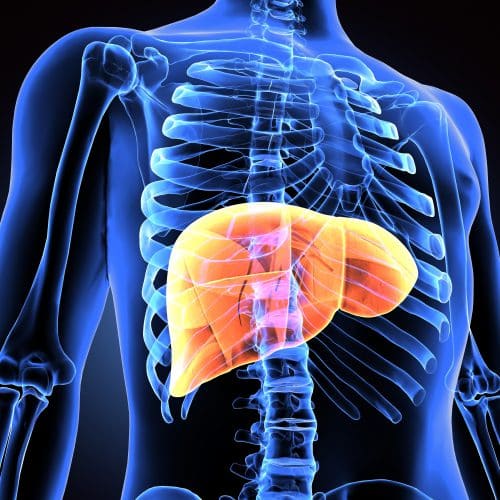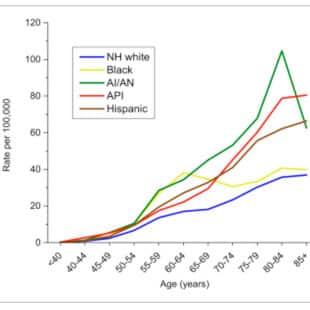
Hepatitis B

Summary
What is hepatitis?
Hepatitis is inflammation of the liver. Inflammation is swelling that happens when tissues of the body are injured or infected. It can damage your liver. This swelling and damage can affect how well your liver functions.
What is hepatitis B?
Hepatitis B is a type of viral hepatitis. It can cause an acute (short-term) or chronic (long-term) infection. People with an acute infection usually get better on their own without treatment. Some people with chronic hepatitis B will need treatment.
Thanks to a vaccine, hepatitis B is not very common in the United States. It is more common in certain parts of the world, such as sub-Saharan Africa and parts of Asia.
What causes hepatitis B?
Hepatitis B is caused by the hepatitis B virus. The virus spreads through contact with blood, semen, or other body fluids from a person who has the virus.
Who is at risk for hepatitis B?
Anyone can get hepatitis B, but the risk is higher in:
- Infants born to mothers who have hepatitis B
- People who inject drugs or share needles, syringes, and other types of drug equipment
- Sex partners of people with hepatitis B, especially if they are not using latex or polyurethane condoms during sex
- Men who have sex with men
- People who live with someone who has hepatitis B, especially if they use the same razor, toothbrush, or nail clippers
- Health care and public-safety workers who are exposed to blood on the job
- Hemodialysis patients
- People who have lived in or traveled often to parts of the world where hepatitis B is common
- Have diabetes, hepatitis C, or HIV
What are the symptoms of hepatitis B?
Often, people with hepatitis B don’t have symptoms. Adults and children over 5 are more likely to have symptoms than younger children.
Some people with acute hepatitis B have symptoms 2 to 5 months after infection. These symptoms can include:
- Dark yellow urine
- Diarrhea
- Fatigue
- Fever
- Gray- or clay-colored stools
- Joint pain
- Loss of appetite
- Nausea and/or vomiting
- Abdominal pain
- Yellowish eyes and skin, called jaundice
If you have chronic hepatitis B, you may not have symptoms until complications develop. This could be decades after you were infected. For this reason, hepatitis B screening is important, even if you have no symptoms. Screening means that you are tested for a disease even though you don’t have symptoms. If you are at high risk, your health care provider may suggest screening.
What other problems can hepatitis B cause?
In rare cases, acute hepatitis B can cause liver failure.
Chronic hepatitis B can develop into a serious disease that causes long-term health problems such as cirrhosis (scarring of the liver), liver cancer, and liver failure.
If you have ever had hepatitis B, the virus may become active again, or reactivated, later in life. This could start to damage the liver and cause symptoms.
How is hepatitis B diagnosed?
To diagnose hepatitis B, your health care provider may use many tools to make a diagnosis:
- A medical history, which includes asking about your symptoms
- A physical exam
- Blood tests, including tests for viral hepatitis
What are the treatments for hepatitis B?
If you have acute hepatitis B, you probably don’t need treatment. Some people with chronic hepatitis B don’t need treatment. But if you have a chronic infection and blood tests show that hepatitis B could be damaging your liver, you may need to take antiviral medicines.
Can hepatitis B be prevented?
The best way to prevent hepatitis B is to get the hepatitis B vaccine.
You can also reduce your chance of hepatitis B infection by:
- Not sharing drug needles or other drug materials
- Wearing gloves if you have to touch another person’s blood or open sores
- Making sure your tattoo artist or body piercer uses sterile tools
- Not sharing personal items, such as toothbrushes, razors, or nail clippers
- Using a latex condom during sex. If your or your partner is allergic to latex, you can use polyurethane condoms.
If you think you have been in contact with the hepatitis B virus, see your health care provider right away. Your provider may give you a dose of the hepatitis B vaccine to prevent infection. In some cases, your provider may also give you a medicine called hepatitis B immune globulin (HBIG). You need to get the vaccine and the HBIG (if needed) as soon as possible after coming into contact with the virus. It is best if you can get them within 24 hours.
National Institute of Diabetes and Digestive and Kidney Diseases
Source: MedlinePlus, National Library of Medicine.
MedlinePlus brings together authoritative health information from the National Library of Medicine (NLM), the National Institutes of Health (NIH), and other government agencies and health-related organizations.
Hepatitis B
American Academy of Family Physicians
Hepatitis B
National Institute of Diabetes and Digestive and Kidney Diseases
Hepatitis B: Frequently Asked Questions for the Public
Centers for Disease Control and Prevention
Hepatitis B: Patient's Guide
Department of Veterans Affairs
Hepatitis Panel
National Library of Medicine
Liver Function Tests
National Library of Medicine
Approved Drugs for Adults
Hepatitis B Foundation
Treatment Options for Hepatitis B
Hepatitis B Foundation
Listen to our
latest Podcast!





